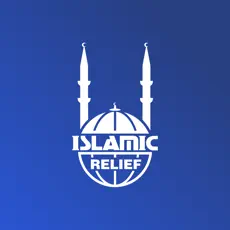Islamic Relief USA (IRUSA) and its partner Islamic Relief have been at the forefront of humanitarian efforts around the world, including in Jordan, a country facing various socio-economic challenges compounded by an influx of refugees from neighboring conflict zones. Through its multifaceted programs, Islamic Relief has been instrumental in providing essential services, alleviating poverty, and empowering communities to build resilient futures. Since 1997, the organization has implemented targeted initiatives and efforts in Jordan, ultimately achieving positive outcomes in multiple areas.
Challenges in Jordan
Jordanians face significant challenges that impact their daily lives and economic prospects. Chronic high unemployment rates, particularly among youth and women, is a major hurdle. Despite efforts to diversify the economy, job opportunities remain limited, exacerbating social and economic disparities. Moreover, Jordan grapples with insufficient natural resources, including water scarcity and energy dependence. This causes environmental concerns and inhibits sustainable development efforts.
Jordan’s dependence on foreign aid to sustain its economy adds another layer of vulnerability. While aid plays a crucial role in meeting basic needs and supporting development projects, it also highlights the country’s dependence on external assistance. Addressing these challenges will require a multi-pronged approach, including targeted policies to stimulate job creation, investments in renewable energy and water management, and initiatives to promote economic self-sufficiency and reduce reliance on foreign aid. Such efforts are essential for long-term stability and prosperity in Jordan.
Addressing the refugee crisis
Jordan has long been a haven for refugees fleeing conflict in neighboring countries, particularly Syria and Iraq. As of 2023, more than 2.3 million Palestinian refugees have entered the country, along with 660,000 Syrian refuges. Most of these refugees do not have access to public services and basic resources.
This influx of refugees has strained resources and infrastructure, posing immense challenges to both the refugees and host communities. Islamic Relief has been actively involved in addressing the needs of these vulnerable populations, providing vital assistance in the form of food, shelter, healthcare, and education. Additionally, Islamic Relief implements programs to help Syrian refugees integrate into social communities within Jordan.
Food security and livelihood programs
Two of the primary goals of Islamic Relief’s work in Jordan are ensuring food security and promoting sustainable livelihoods. Through initiatives such as food distribution, agricultural development, and vocational training, Islamic Relief addresses the root causes of poverty and empower individuals to become self-reliant. By equipping communities with the skills and resources they need to cultivate their own food and generate income, Islamic Relief is fostering long-term resilience and reducing dependency on external aid.
Islamic Relief also provides cash aid for vulnerable families, including orphan families, female-headed households, and families with members living with chronic illness or disability.
Education and child welfare
Education is a fundamental right that is often compromised in crisis situations. Islamic Relief recognizes the importance of education in empowering individuals and rebuilding communities. In Jordan, Islamic Relief supports numerous programs that increase access to education, including school construction projects, provision of school supplies, and teacher training initiatives. Additionally, Islamic Relief places a strong emphasis on child welfare, ensuring that vulnerable children have access to quality education, psychosocial support, and protection services.
Healthcare services
Access to healthcare is essential for the well-being of communities, especially in regions affected by conflict and displacement. Islamic Relief operates healthcare clinics and mobile medical units in Jordan, providing primary healthcare services, vaccinations, maternal and child health care, and psychosocial support to refugees and vulnerable populations. These efforts play a crucial role in addressing the healthcare needs of underserved communities and mitigating the spread of disease.
Winter aid
Jordanians are particularly vulnerable to cold winters, not just because of temperatures, but because refugee homes are often leaky, damp, uninsulated, and open. Wet weather can lead to mold, as well as flooded dwellings that cause illness and destroy household items like mattresses and blankets. Islamic Relief provides winter assistance packages that might include heating costs for several winter months, along with other essential cold weather items to help refugee families stay safe during the winter season.
Women’s empowerment and gender equality
Women and girls are often disproportionately affected by crises, facing increased vulnerabilities and barriers to accessing essential services and opportunities. Islamic Relief prioritizes women’s empowerment and gender equality in its programs, providing women with access to education, livelihood opportunities, and support services. By empowering women to participate fully in economic, social, and political life, Islamic Relief is promoting gender equality and contributing to more inclusive and resilient communities.
Islamic Relief’s work in Jordan exemplifies its commitment to serving humanity with compassion and dignity. Through its comprehensive humanitarian programs, Islamic Relief is making a tangible difference in the lives of refugees, displaced persons, and vulnerable communities, empowering them to overcome adversity and build brighter futures. As Jordan continues to navigate complex challenges, IRUSA and Islamic Relief remain steadfast in their mission to alleviate suffering, promote sustainable development, and foster hope and resilience.
